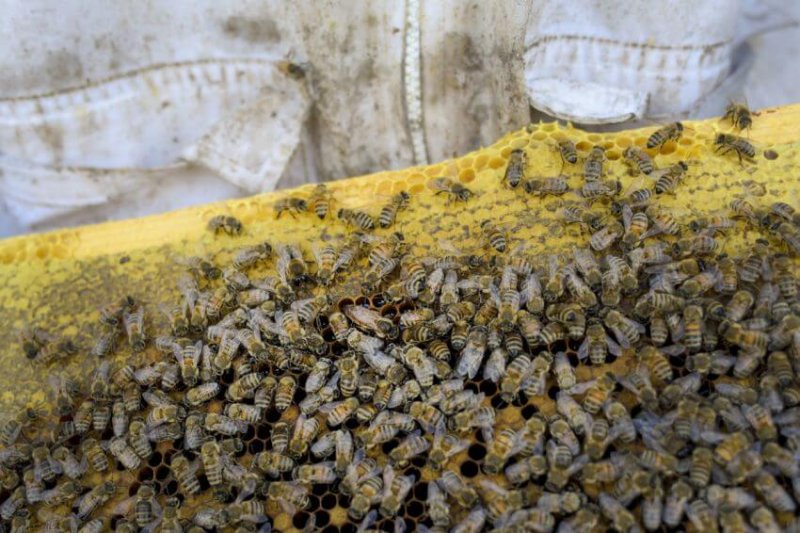On Canadian farms, almost 800,000 honeybee colonies are in active duty this year. That’s about 10 percent more than in 2016, which was another record year. In fact, the number of hives have been climbing since the late 1990s.
Western Canada is the source of about 80 percent of Canada’s honey. The prairies are home to 500,000 hives and eight million hectares of canola, which is a major source of pollen and nectar for western Canadian bees.
In Ontario, honeybee losses due to pesticides at or around corn and soybean planting times are down. Farmers, who already provide the lion’s share of opportunities for pollinators, are employing even more pollinator-friendly production practices.
After a disastrous 2014, overwintering loss rates for honeybee hives improved for the 2015 and 2016 winters.
Alberta beekeeper Kevin Nixon, president of the Canadian Honey Council, says things are looking up everywhere.
“There’s a misunderstanding that the honeybee population is collapsing, but that’s not true,” says Nixon, whose organization represents 9,500 beekeepers across Canada. “In cities and on farms, everyone is pitching in to save bees.”
“Farms and beekeepers everywhere are doing a great job,” adds Gregory Sekulic, an agronomist with the Canola Council of Canada. “We’re seeing a lot of good beekeeping in this country.”
The GLP aggregated and excerpted this blog/article to reflect the diversity of news, opinion, and analysis. Read full, original post: Canadian beehive numbers have been climbing since the ’90s: The New Farm































